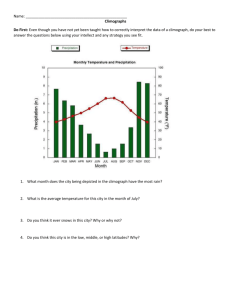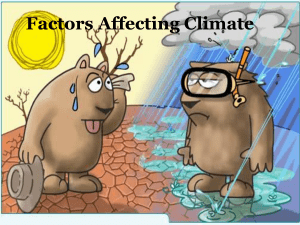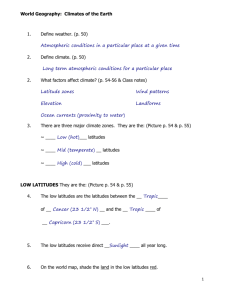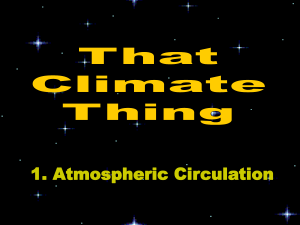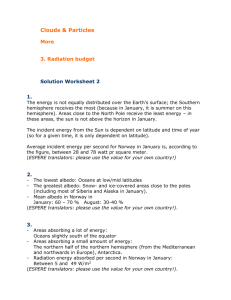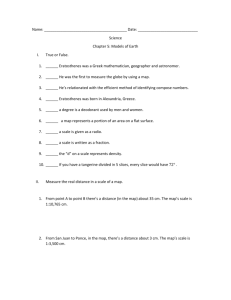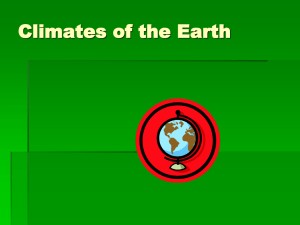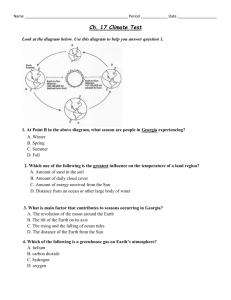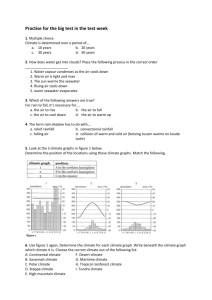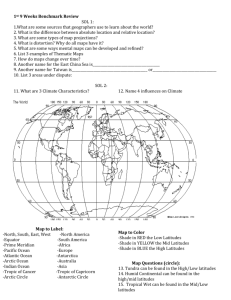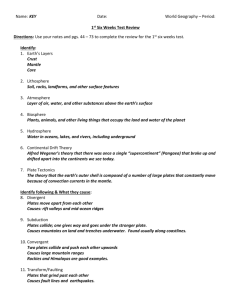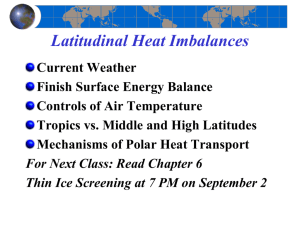THORNTON-ATMS-211-Homework-5-ANSWER
advertisement
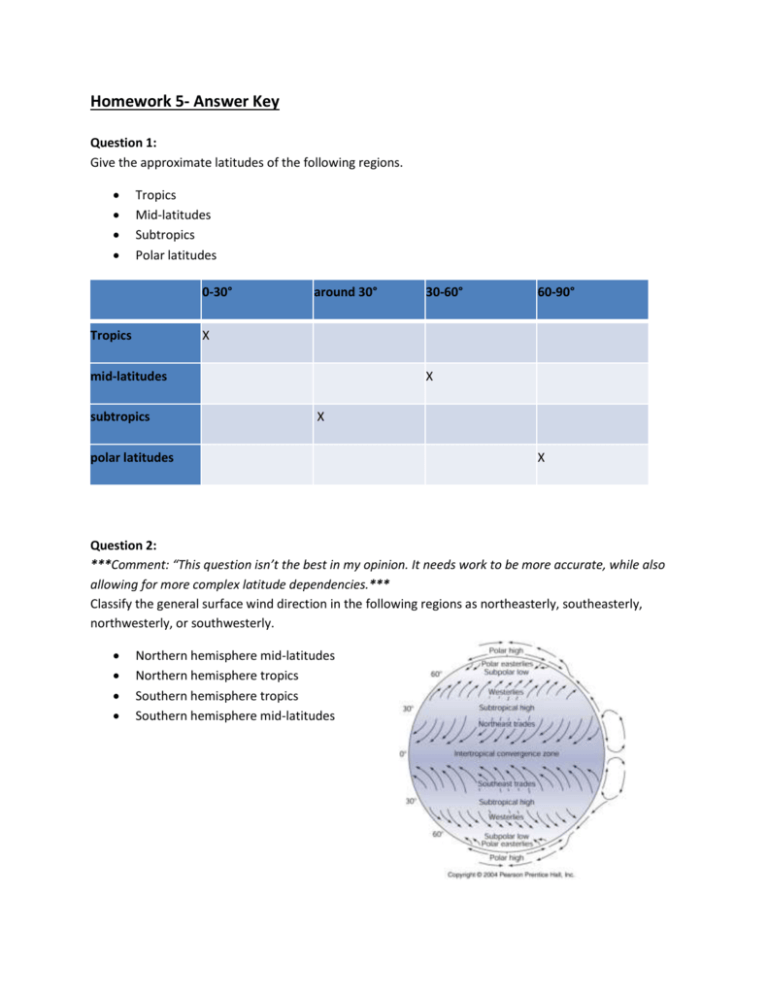
Homework 5- Answer Key Question 1: Give the approximate latitudes of the following regions. Tropics Mid-latitudes Subtropics Polar latitudes 0-30° Tropics around 30° 30-60° 60-90° X mid-latitudes subtropics X X polar latitudes X Question 2: ***Comment: “This question isn’t the best in my opinion. It needs work to be more accurate, while also allowing for more complex latitude dependencies.*** Classify the general surface wind direction in the following regions as northeasterly, southeasterly, northwesterly, or southwesterly. Northern hemisphere mid-latitudes Northern hemisphere tropics Southern hemisphere tropics Southern hemisphere mid-latitudes Question 3: True or False: a) Air released from a tire is cooler than its surroundings TRUE An air parcel that rises expands due to lower surrounding pressure EXPANSION requires WORK by the parcel Air parcel doing WORK, loses Energy, Temperature of parcel goes down. Sinking motions are opposite (compression warms) b) In cold climates the air indoors tends to be extremely dry (low RH) TRUE c) Moist parcels cool more rapidly than dry parcels when they are lifted FALSE Two lapse rates: dry adiabatic: -9.8 K/km wet adiabatic: -6.5 k/km wet altitude dry T The phase change during lifting releases heat when lifting moist parcels, buffering the temperature decrease d) Areas of precipitation tend to be associated with divergence in the lower troposphere and convergence in the upper troposphere FALSE e) Less solar energy is absorbed per square meter at high latitudes (i.e. polar latitudes) than at low (i.e. subtropical) latitudes TRUE f) Antarctica experiences higher maximum daily total solar radiation flux than Hawaii TRUE g) The Hadley cell extends from equator to pole FALSE h) The Coriolis effect is responsible for the circulation of water going down the drain of a sink. TRUE Question 4: Identify and describe the effect of four forces (real or perceived) involved in atmospheric circulation. Pressure gradient force Coriolis force (centrifugal force is lumped together) Friction force Buoyance force (gravity force) Question 5: Describe three processes that produce uplift in the atmosphere. a. Heated at bottom b. Orographic forcing (upslope movement) c. Convergence near the surface Question 6: What is the fundamental cause of atmospheric circulation on the Earth? What is the result of this circulation for Earth’s energy balance? Non-uniform energy distribution Atmospheric circulation carries the net radiation surplus from tropical regions to energy deficit region in higher latitudes; we have different weather phenomena during this process
